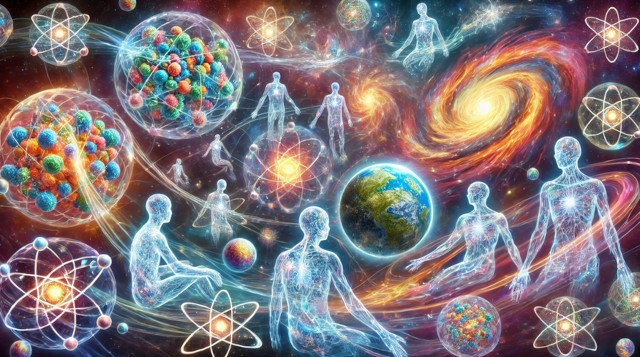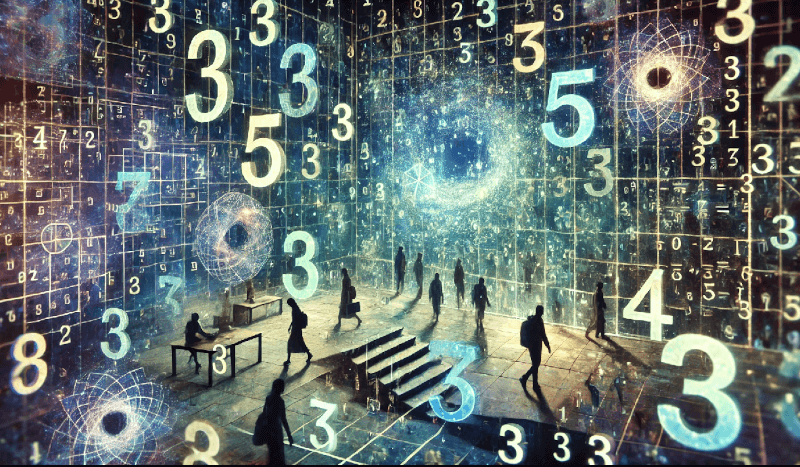Have we misunderstood the very nature of existence?
January 5, 2025 - Reading time: 6 minutes

Materialists believe that this world exists independently of us. It consists of atoms, molecules, planets, stars, and galaxies. It just happens that there are billions of humans, who, like other animals, are seen as biological robots. They interact with material objects and one another, moving from place to place. Atop their bodies are computational elements - their brains - which have evolved through natural evolutionary processes as tools for survival. These beings store information within their interconnected cells. When they die, the structured cells that hold the memories of life disappear entirely. New organisms are then born, continuing the biological cycle of reproduction and survival.
But what if this view of the world is completely wrong? What if everything you thought you knew about life and death does not follow this materialistic concept?
Coincidences as an argument for the existence of god
October 30, 2024 - Reading time: 5 minutes

The key question of our lives is the question of the existence of God (or gods, in the case of polytheism). This question can be framed more generally: Are we merely complex, self-operating mechanisms created by random forces, atoms and molecules that are entirely indifferent to human beings?
A wide range of evidence supporting the God hypothesis. It can be grouped into philosophical arguments (such as the moral argument), scientific arguments (including the cosmological and fine-tuning arguments), the concept of irreducible complexity, religious arguments, and near-death experience accounts. Some may find these arguments convincing, while others might prefer more concrete, empirical evidence.

The problem of missing people on the Internet
July 26, 2024 - Reading time: 8 minutes
If you are a frequent Internet user, you may notice an interesting phenomenon: a mismatch between your expectations of how many people should be engaged in various issues, and the actual reality. This situation is especially common on social media. For example, I recently joined a Facebook group with about 5 million members, but when I looked at the group's activity, I saw only about 10 people asking questions and making comments.
The same was true for Reddit. Conduct a test: go to Reddit and examine discussions in communities with over 200,000 members, where more than 50 members are online. You will hardly see any comments, and the ones you do see are often generic, like "Aha!" Recently, I tested this by posting a message in the group "MeaningOfLife," which has about 4k members. I was thrilled to receive one comment, but the group seemed completely inactive otherwise.
Next, visit Reddit's main page. You'll likely notice that 100% of the most popular posts are mundane, and honestly, quite silly, such as, "My girlfriend got a terrible haircut and she's crying," which garner thousands of comments and upvotes. While I suspect many of these comments and upvotes are from bots, it still raises questions. Why does this happen? Who (or what) is steering such discussions and with what purpose? Programmable bots? But who programmed them?